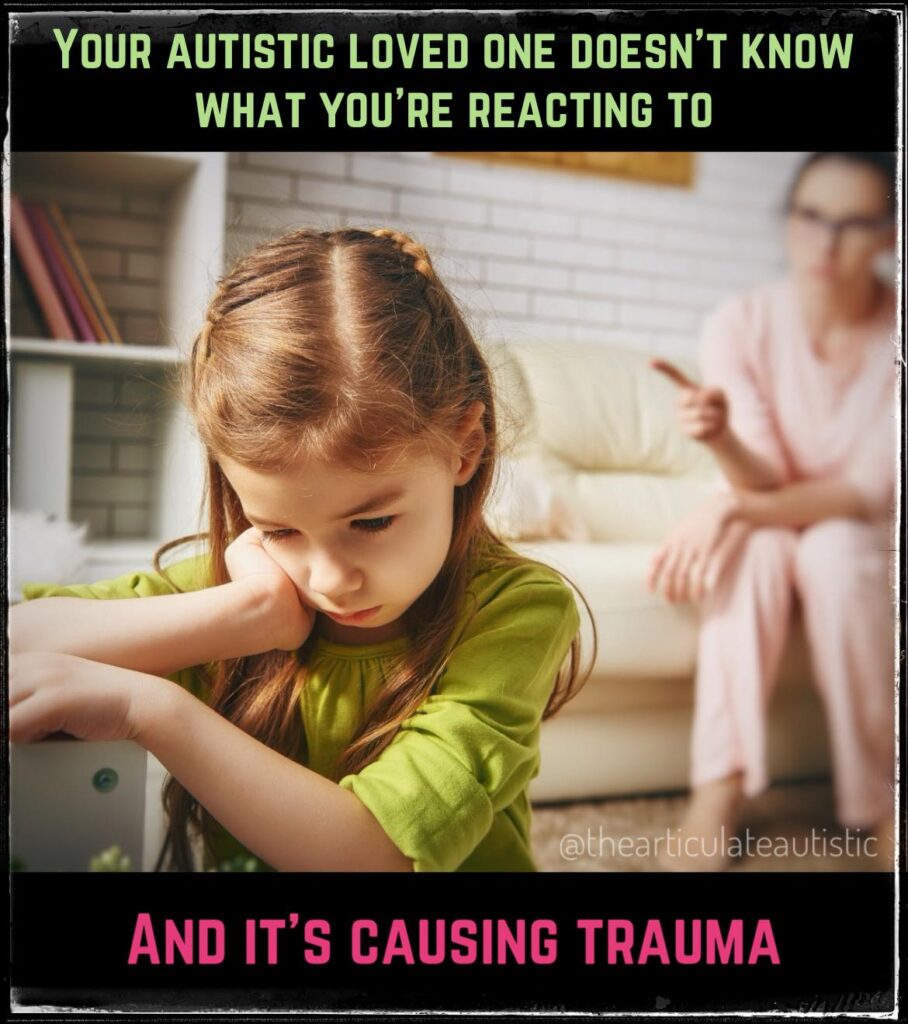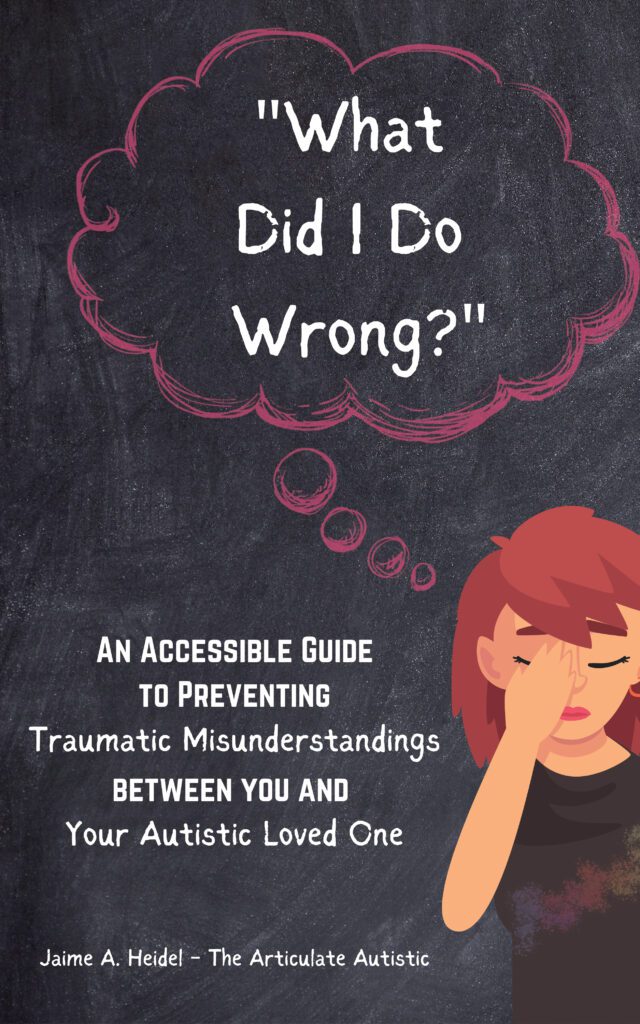Your Autistic Loved One Doesn’t Know What You’re Reacting To, and It’s Causing Trauma

When people who have little experience with mental illness hear the term ‘complex PTSD’, their minds automatically conjure images of sustained physical abuse or one major traumatic life event that permanently altered one’s nervous system and brain chemistry.
Rarely do people think of being chronically yelled at, bullied, corrected, punished, abandoned, fired, and threatened–for seemingly no reason throughout a lifetime–as a cause of post-traumatic stress disorder–because this particular type of trauma occurs almost exclusively in autistic and ADHD people, and there haven’t been enough scientific studies on this phenomenon to properly validate it.
“The Attack of the Vultures”
Imagine you live in an area where flocks of vultures also reside. Each time you leave the house, you catch a glimpse of them. Some swoop and dive, some perch in a tree, shifting from foot to foot, glaring menacingly, and some let out fearsome calls in your direction.
Based on your experience, you know there’s something about you that inevitably causes them to attack, but you don’t know what that something is, and what’s strange is that what causes them to attack seems to change as frequently as the weather!
In hopes of avoiding this, you tried something new each time you left the house. First, you tried wearing bland colors, nothing flashy that might attract their notice. They attacked anyway. Second, you tried avoiding eye contact. They attacked anyway. Third, you attempted to keep your voice low. They attacked anyway. Fourth, you tried to avoid the places they frequented, but even when you did that, you inevitably ran into at least one of them, and they attacked anyway.
Finally, during an attack, you scream, “Why are you doing this!? Why won’t you leave me alone!?” The vultures (because in this analogy, the carrion-feeding birds can speak) look taken aback at your outburst and answer plainly, “Why, you asked for this! You know exactly what you did!”, and continue to peck away.
I coined the term, “The Attack of the Vultures” over a decade ago during an argument with someone I was in a relationship with. I told them that this is what life felt like for me when they (and everyone else) got angry with me, and I couldn’t understand why. The worst part of all of it wasn’t even the anger, but that people insisted I knew what I had done to provoke their anger and made it a point to not answer any clarifying questions I had.
I Couldn’t Connect My Behavior to Their Response
Now, I’m not comparing neurotypical people to vultures. I’m comparing what sudden emotional responses that seemed to come out of nowhere felt like to me–like being attacked and slowly picked apart with no understanding of why–and no matter what I did to minimize these attacks, they still weren’t the “correct” things to do–and since nobody would explain to me what the correct things to do were–they just kept coming, seemingly without end, and that’s how my complex PTSD developed.
I was never able to connect my behavior, words, deeds, actions, inactions, facial expressions, tone of voice, etc., to their response, and no matter how much I asked, begged, pleaded, sobbed, and insisted that I didn’t know what went wrong, and I desperately needed an explanation, I wasn’t given one.
Instead, I had to learn the information through trial and error, by reading books, doing dialectical behavior therapy, sharing ‘battle’ stories with other autistic people, and communicating with a few understanding and patient neurotypical strangers I met online.
“What Did I Do Wrong?” – An Accessible Guide to Preventing Traumatic Misunderstandings Between You and Your Autistic Loved One
Whether you’re a parent, teacher, friend, family member, partner, supervisor, etc., of an autistic person, you’re going to experience frustration, you’re going to experience confusion, and you’re going to have unmet needs on both sides.
You don’t have to go on like this. I took everything I’ve learned about the most common misunderstandings between neurotypical and autistic people and put it into a straightforward and helpful guide that will significantly reduce these everyday misunderstandings and have you experiencing more effective communication right away!
If you’ve ever wondered why the autistic person in your life forgets important events, doesn’t seem to reciprocate in conversation, seems angry or sullen all the time, appears bored or disinterested when you speak, doesn’t appear grateful for what you do for them, and continually makes “excuses” for their behaviors–my book explains all of this and so many more!
Take the first step to better understanding the autistic person in your life.
Pick up your copy of “What Did I Do Wrong?” on Barnes & Noble today. You won’t regret it.




How do I access a copy of your book from UK? It doesn’t appear to be available via kindle/amazon in the UK. Thanks
Hmmm…that’s strange. Plenty of people have been purchasing it from the UK. Would you like me to try sending the direct link to your email address?
Really want to read this article, but birds, especially vultures, are a special interest, and you’ve totally mischaracterized them. Vultures are carrion specialists- they’re food is already dead, they don’t attack!! Please, if you’re going to draw conclusions between species, do a little research on the other species first.